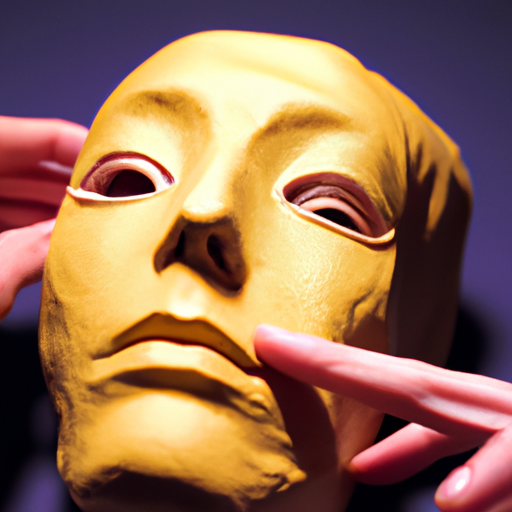How to combat headaches

Natural remedies for relieving headaches
Headaches are a common ailment that can range from mildly annoying to debilitating. While over-the-counter pain relievers can provide temporary relief, many people prefer to explore natural remedies for relieving headaches. These remedies can be effective in reducing the frequency and intensity of headaches, without the potential side effects of medication. In this article, we will explore some natural remedies that have been found to be helpful in combating headaches.
One of the most popular natural remedies for headaches is aromatherapy. Certain essential oils, such as lavender and peppermint, have been shown to have a calming effect on the mind and body. These oils can be applied topically to the temples or forehead, or inhaled through a diffuser. The soothing scent of these oils can help to relax tense muscles and alleviate headache pain.
Another natural remedy for headaches is acupuncture. This ancient Chinese practice involves the insertion of thin needles into specific points on the body. Acupuncture is believed to stimulate the release of endorphins, which are natural painkillers. It can also help to improve blood flow and reduce muscle tension, both of which can contribute to headache relief. Many people find acupuncture to be a relaxing and effective treatment for their headaches.
In addition to aromatherapy and acupuncture, certain dietary changes can also help to combat headaches. One common trigger for headaches is dehydration, so it is important to drink plenty of water throughout the day. Caffeine withdrawal can also cause headaches, so it may be helpful to gradually reduce your caffeine intake if you are a regular coffee or tea drinker. Additionally, some people find that certain foods, such as chocolate or aged cheeses, can trigger their headaches. Keeping a food diary and identifying any potential triggers can be helpful in managing headaches.
Stress is another common cause of headaches, so finding ways to relax and reduce stress can be beneficial. Regular exercise, such as yoga or walking, can help to release tension and promote relaxation. Deep breathing exercises and meditation can also be effective in reducing stress and relieving headaches. Taking breaks throughout the day to rest and recharge can also help to prevent headaches caused by overexertion or eye strain.
Finally, getting enough sleep is crucial for preventing headaches. Lack of sleep can lead to increased stress and tension, which can trigger headaches. Establishing a regular sleep routine and creating a relaxing environment in your bedroom can help to promote restful sleep and reduce the frequency of headaches.
While natural remedies can be effective in relieving headaches, it is important to remember that everyone is different. What works for one person may not work for another, so it may take some trial and error to find the right combination of remedies for you. If your headaches persist or worsen, it is always a good idea to consult with a healthcare professional for further evaluation and guidance.
In conclusion, natural remedies can be a safe and effective way to combat headaches. Aromatherapy, acupuncture, dietary changes, stress reduction techniques, and adequate sleep are all natural remedies that have been found to be helpful in relieving headaches. By incorporating these remedies into your daily routine, you may be able to reduce the frequency and intensity of your headaches and improve your overall quality of life.
Effective lifestyle changes to prevent headaches

Headaches can be a debilitating condition that affects millions of people worldwide. Whether it’s a tension headache, a migraine, or a cluster headache, the pain can be excruciating and interfere with daily activities. While medication can provide relief, there are also effective lifestyle changes that can help prevent headaches from occurring in the first place. In this article, we will explore some of these lifestyle changes and how they can be implemented to combat headaches.
One of the most important lifestyle changes to prevent headaches is maintaining a regular sleep schedule. Lack of sleep or irregular sleep patterns can trigger headaches in many individuals. It is recommended to aim for seven to eight hours of sleep each night and establish a consistent sleep routine. Going to bed and waking up at the same time every day, even on weekends, can help regulate your body’s internal clock and reduce the likelihood of headaches.
Another lifestyle change that can be effective in preventing headaches is managing stress levels. Stress is a common trigger for headaches, and finding healthy ways to cope with stress can make a significant difference. Engaging in relaxation techniques such as deep breathing exercises, meditation, or yoga can help reduce stress levels and prevent headaches. Additionally, finding time for hobbies, exercise, and socializing can also contribute to stress reduction and overall well-being.
Maintaining a healthy diet is another crucial lifestyle change that can help combat headaches. Certain foods and beverages, such as caffeine, alcohol, processed foods, and artificial sweeteners, have been known to trigger headaches in some individuals. It is important to identify any specific triggers and avoid them as much as possible. Instead, focus on consuming a balanced diet rich in fruits, vegetables, whole grains, and lean proteins. Staying hydrated by drinking plenty of water throughout the day is also essential in preventing headaches.
Regular physical activity is not only beneficial for overall health but can also help prevent headaches. Engaging in moderate aerobic exercise, such as walking, swimming, or cycling, for at least 30 minutes a day can improve blood circulation and reduce the frequency and intensity of headaches. However, it is important to start slowly and gradually increase the intensity and duration of exercise to avoid triggering headaches.
In addition to these lifestyle changes, it is crucial to maintain a healthy posture and ergonomics to prevent headaches. Poor posture, especially when sitting for long periods, can strain the neck and shoulder muscles, leading to tension headaches. It is recommended to sit up straight, with the shoulders relaxed and the head aligned with the spine. Using ergonomic furniture and adjusting computer screens to eye level can also help maintain proper posture and reduce the risk of headaches.
Lastly, it is important to avoid excessive use of electronic devices, such as smartphones and computers, as they can contribute to eye strain and trigger headaches. Taking regular breaks, practicing the 20-20-20 rule (looking away from the screen every 20 minutes at an object 20 feet away for 20 seconds), and ensuring proper lighting can help prevent eye strain and reduce the likelihood of headaches.
In conclusion, making effective lifestyle changes can significantly reduce the occurrence of headaches. Maintaining a regular sleep schedule, managing stress levels, following a healthy diet, engaging in regular physical activity, maintaining proper posture and ergonomics, and avoiding excessive use of electronic devices are all important steps in preventing headaches. By implementing these changes, individuals can take control of their headaches and improve their overall quality of life.
Tips for managing stress-induced headaches
Stress-induced headaches can be debilitating and disruptive to daily life. Whether they are caused by work pressures, relationship issues, or financial concerns, finding effective ways to manage and combat these headaches is crucial. In this article, we will explore some tips for managing stress-induced headaches.
One of the most important steps in combating stress-induced headaches is identifying the source of stress. By understanding what triggers your headaches, you can take proactive measures to avoid or minimize those triggers. This may involve making changes to your lifestyle, such as reducing your workload, setting boundaries in relationships, or seeking financial advice.
Once you have identified the sources of stress, it is essential to develop healthy coping mechanisms. Engaging in regular exercise, practicing relaxation techniques such as deep breathing or meditation, and maintaining a balanced diet can all contribute to reducing stress levels. These activities help to release endorphins, which are natural painkillers and mood boosters.
In addition to lifestyle changes, it is important to prioritize self-care. Taking time for yourself and engaging in activities that bring you joy and relaxation can significantly reduce stress levels. This may include hobbies, spending time with loved ones, or simply taking a long bath. By prioritizing self-care, you are giving yourself permission to recharge and rejuvenate, which can have a positive impact on your overall well-being.
Another effective strategy for managing stress-induced headaches is practicing good sleep hygiene. Getting enough sleep is crucial for both physical and mental health. Establishing a regular sleep schedule, creating a comfortable sleep environment, and avoiding stimulants such as caffeine or electronic devices before bed can all contribute to better sleep quality. By ensuring you are well-rested, you are better equipped to handle stress and prevent headaches.
In some cases, seeking professional help may be necessary to manage stress-induced headaches. Consulting with a healthcare provider or therapist can provide valuable insights and guidance. They may recommend specific treatments or therapies, such as cognitive-behavioral therapy or medication, to help alleviate stress and reduce the frequency and intensity of headaches.
It is also important to remember that prevention is key. By implementing stress management techniques on a regular basis, you can reduce the likelihood of experiencing stress-induced headaches. This may involve incorporating relaxation exercises into your daily routine, practicing mindfulness, or seeking support from a support group or counselor.
In conclusion, stress-induced headaches can be challenging to manage, but with the right strategies, they can be effectively combated. By identifying the sources of stress, developing healthy coping mechanisms, prioritizing self-care, practicing good sleep hygiene, and seeking professional help when needed, you can significantly reduce the impact of stress on your overall well-being. Remember, prevention is key, so make stress management a priority in your daily life. By taking proactive steps to combat stress-induced headaches, you can regain control and improve your quality of life.

